Graham Reid | | 3 min read
Old Siam, Sir (Wings, 1979)
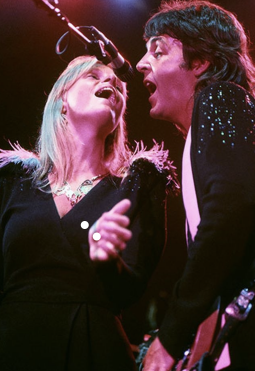
Such was the detail in the first volume of this remarkable project – “granular” seems to be the current term – that we privately doubted we'd ever see this second volume.
The first took McCartney from being an unemployed musician sitting in his remote Scottish cottage drinking whisky and feeling depressed to a career resurrection with the Band on the Run megaseller.
But McCartney's rehabilitation with critics and the public followed albums which were reviewed in excoriating prose for a public also expecting more from a former Beatle.
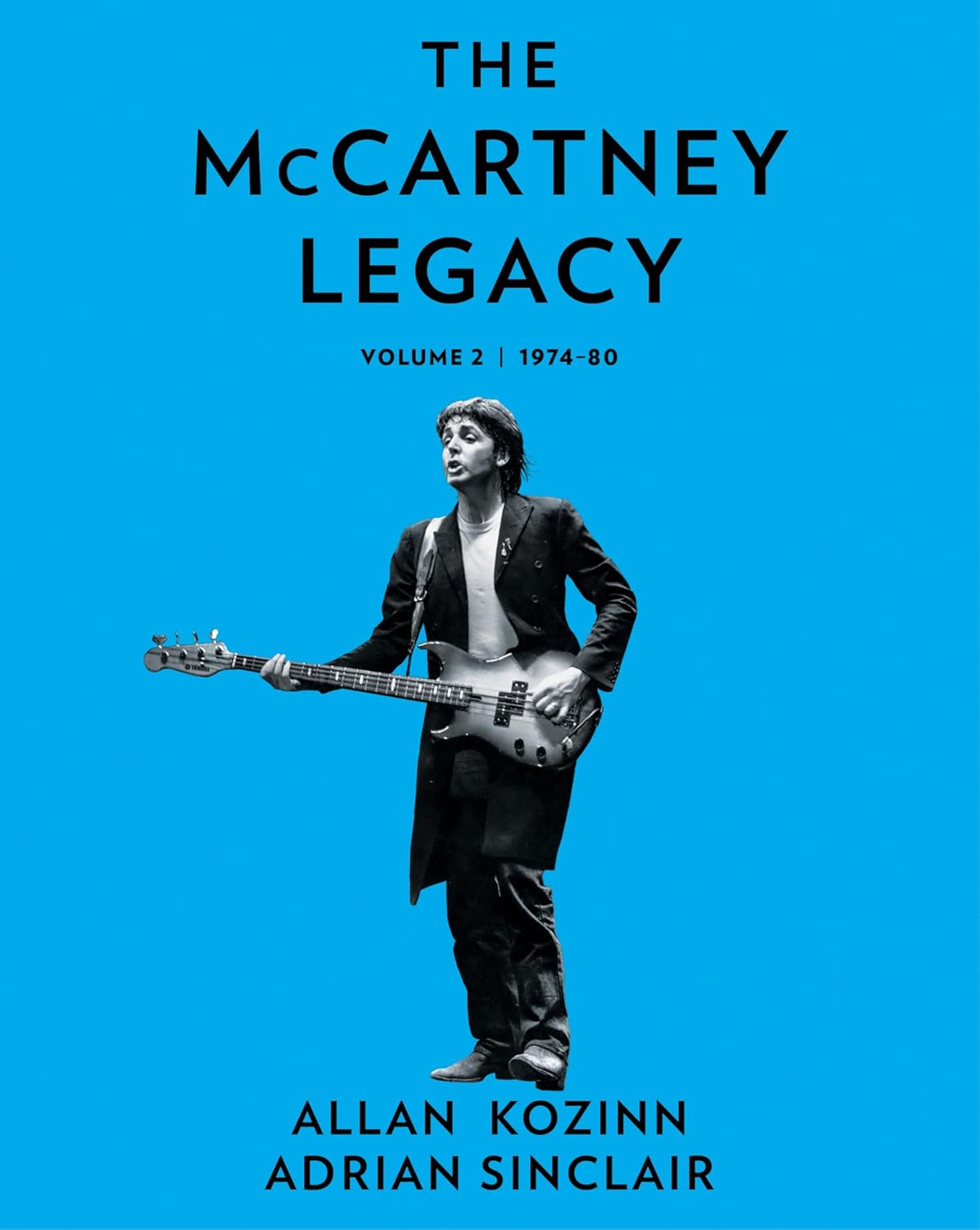 Over 700 pages the authors drilled down into the raw detail in the kind of research which is rare outside of academia.
Over 700 pages the authors drilled down into the raw detail in the kind of research which is rare outside of academia.
Yet here was a compelling story of a man plagued by self-doubt and living in the shadow of an illustrious past. And all the while lawyers and litigation swirled around him.
This equally detailed and assiduously researched volume opens not with a new album of his own but him rallying around his brother Mike and, with Wings, recording the much overlooked McGear album for which Paul wrote and produced.
As we have noted in our review of it many years ago, it was a McCartney album fronted by Mike and closer in spirit to Paul's Ram album (also one which gained increasing respect after initially poor reviews).
From here we see McCartney – still plagued with uncertainty – looking for a Wings album to follow Band on the Run's success and working through months of studio time to eventually emerge with Venus and Mars which met with unimpressed reviewers.
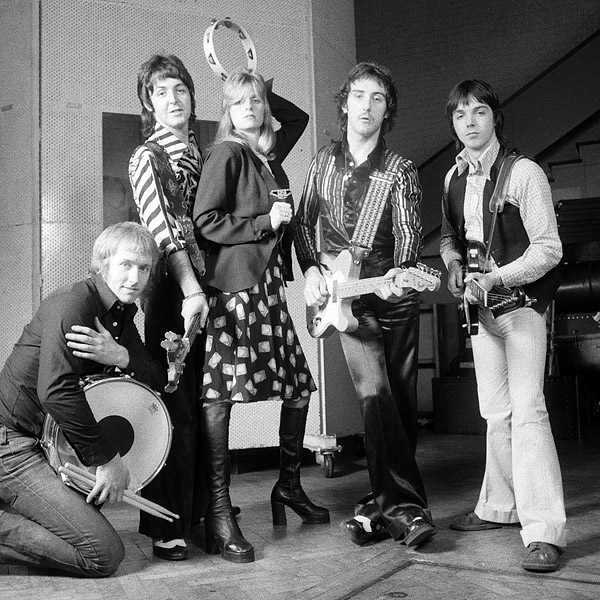 If there is a theme running through these years which took him to recording another solo album (McCartney II, unreleased when the book ends) it is that although McCartney lives with rigid self-criticism and doubts about what he has recorded he's also single-minded to the point of shedding producers and engineers – and band members – because it is his way or not at all.
If there is a theme running through these years which took him to recording another solo album (McCartney II, unreleased when the book ends) it is that although McCartney lives with rigid self-criticism and doubts about what he has recorded he's also single-minded to the point of shedding producers and engineers – and band members – because it is his way or not at all.
With Wings Mk II he again encountered the issue of employing musicians he hadn't worked with: there was no organic growth as per the Beatles but rather players brought in to do the job, and wait around.
Scottish guitarist Jimmy McCullough wasn't one for waiting and got easily bored in the studio. He also got roaring drunk and argumentative, didn't hold back in his criticism of Linda McCartney's role in the band, itched to get on the road and play live, and went the whole Keith Moon in terms of trashing hotel rooms and damaging cars.
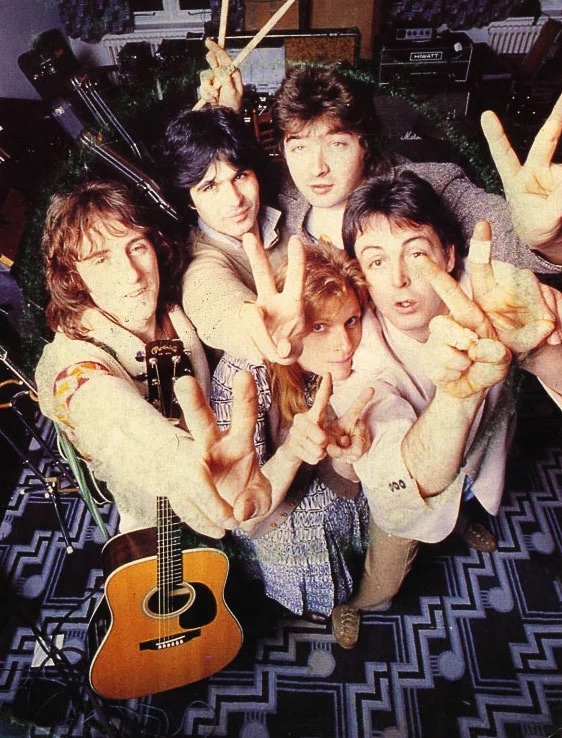 That McCartney tolerated this for so long is extraordinary, but his pride in having a new band meant he didn't want to get rid of him lest it looked like another failure on his part.
That McCartney tolerated this for so long is extraordinary, but his pride in having a new band meant he didn't want to get rid of him lest it looked like another failure on his part.
This volume runs almost like the antithesis of the first: it begins on a high but then winds down through a series of ordinary albums which the McCartneys (Paul and Linda) with loyal Denny Laine pulled together out of often soft-centre songs.
The reviews published of albums like London Town and singles (Silly Love Songs, Mull of Kintyre and Wonderful Christmas Time along them) are withering.
Yet during this period McCartney undertook the enormously popular Wings tours which resulted in the triple album Wings Over America.
Critics disliked him, the public didn't when it came to touring. They turned out in their thousands to cheer him on in 1976, many of them Wings fans more than those of the Beatle generation.
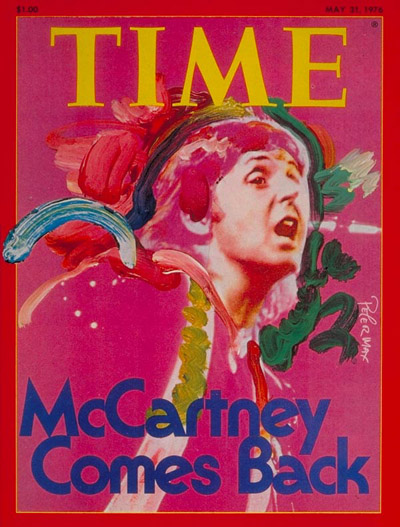 It got him on the cover of Time.
It got him on the cover of Time.
But it's a measure of how low his star fell was one reason given for Glenn Matlock being kicked out of the Sex Pistols was he admired McCartney. By the end of the decade it was very much Us Vs Him.
As before the spectre of the other former Beatles is accounted for: relationships sometimes friendly and at others tetchy or argumentative.
And we get an insight into the McCartneys' family life, not all of flattering when it comes to allowing their kids to run amuck in hotels and private homes they rented where the girls take to the walls and couches with crayons.
A cheque rather than a reprimand seems to solve the problem.
That said, almost universally of those many hundreds interviewed, speak highly of Linda as a person and mother.
Towards the end of this difficult period – during which McCartney sprung all kinds of ideas for films and albums, recorded hundreds of hours of music which has gone unreleased and eventually wearied of Wings Mk III – he is looking to start a solo career rather than try to keep a band together.
And then they go to Japan where Paul is busted for possession of marijuana . . .
As the last page says, “ . . .to be continued.”
.
THE McCARTNEY LEGACY VOL. 2 1974-80 by ALLAN KOZINN and ADRIAN SINCLAIR Deyst NZ$75


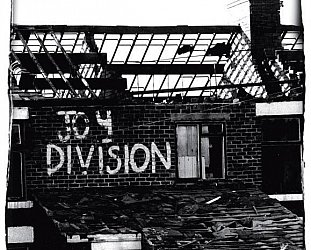

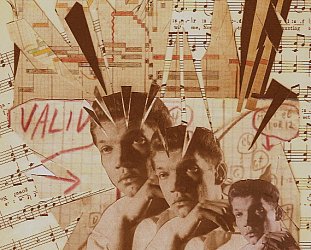
paul george - Jan 30, 2025
Great piece, love the site ….the complexities of the Beatles and as individuals consistently make for fascinating reading
Savepost a comment